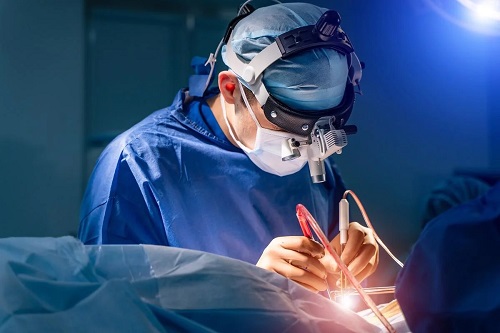Neurosurgical Products Are Used For Several Types of Surgeries
Endoscopes are neurosurgical products with long tubes that have a light and camera at one end. They allow a doctor, nurse, or practitioner to look inside the body and see images on a monitor in the clinic. They may be inserted through the mouth and down the throat or through the bottom, depending on where the problem is in the digestive system.
As
part of using neurosurgical products, the provider may also feed a little air
pressure into the esophagus to help the endoscope move easily through the
digestive tract. This will also make the folds of the esophagus easier to look
at on the video screen. Stereotactic frame-based neurosurgical systems have
been used in the treatment of a variety of disorders. These include movement
disorders, pain, and epilepsy. In addition to brain surgery, frame-based biopsy
and MRIgLITT have also been developed to target a wide range of tissues. This
procedure has the benefit of being less invasive than surgical procedures, as
the tissue can be removed without requiring extensive surgery.
Head
holders are Neurosurgical
Products that are used to keep the patient's
head in place during neurosurgery procedures. These devices include a head
holder frame, which attaches to the operating table, along with a skull clamp,
skull pins, and other accessories. The FDA warns that the use of skull clamps
before and during surgery can lead to unintended movement of the device,
resulting in injuries such as fractures, facial injuries like bruises and cuts,
deep cuts or lacerations, blood clots (hematoma), and other complications.
A
study found that a skull clamp's pin-type design can cause a puncture hole in
the bone when used in clinical applications. The study is a first step towards
developing recommendations for the safe use of these devices. The results could
lead to a reduction in the number of potential complications and may also help
doctors understand why some patients are more susceptible to these risks.
Laser
tools are neurosurgical products that are used in a variety of applications.
These include surgery, skin treatments, printers, military, and law enforcement
targeting, cutting through steel, and surveying. For construction, electricians
and plumbers use lasers to align, plumb, and level walls, floors, and drop
ceilings. They also help install pipe underground, chair rails in a dining
room, fence posts, and many other tasks.
Surgical
drapes are neurosurgical products that are used to maintain a sterile field in
the operating room. They also protect the patient from bacteria that may be in
the air. They can be reusable or disposable, and come in different materials
depending on the type of procedure. Reusable ones are usually thicker than
disposable ones and can last for many cycles of resterilization. The Centers
for Disease Control and Prevention (CDC) recommends using surgical drapes
during surgery to reduce the risk of infections at the surgical site. But the
data is mixed and it's hard to know whether they work.




Comments
Post a Comment